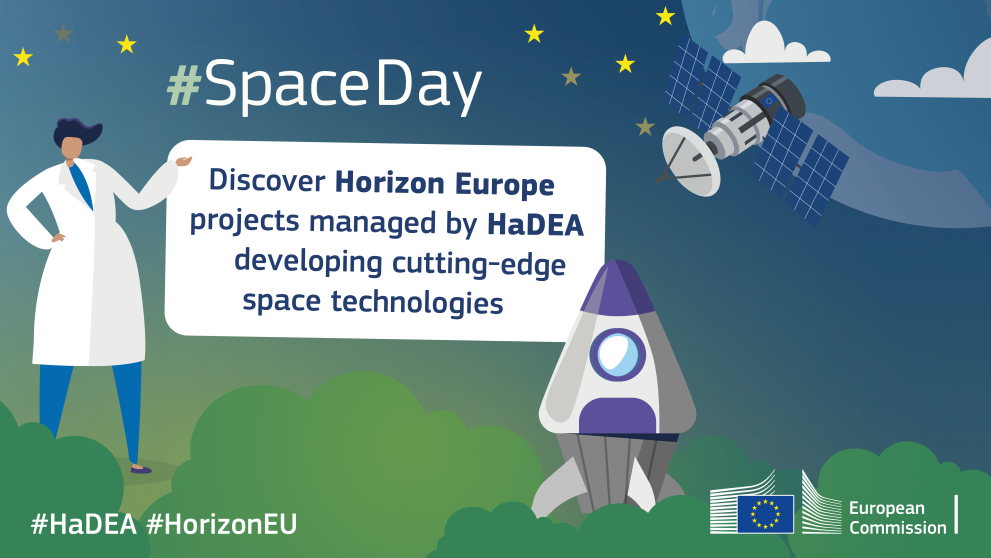
Celebrated every year on the first Friday in May, Space Day is dedicated to raising awareness on outer space and promoting science, technology, engineering and mathematics.
Horizon Europe space research is contributing to the development of cutting-edge space technologies, products and services to ensure that the EU remains competitive in space and can access and use space with a high level of autonomy.
HaDEA is managing research and innovation projects that are contributing to this mission:
- ASTRAIOS aims to provide an overview of the current and future offer of space curricula and courses in the EU. It also analyses the demand from the European space industry in the next 10-15 years, and develops concrete recommendations to better align space curricula with skills required by industry. Outputs from the project will include an online catalogue database and new materials to promote space-related careers.
- CARIOQA-PMP seeks to develop a new technology to be used in space within the next decade: a quantum accelerometer. It will be used for satellite-based Earth science to monitor climate change and support the development of mitigation and adaption measures. The developed technology will be tested during a spatial mission: the Quantum Pathfinder Mission
- EARS proposes to design and build a low-cost spacecraft capable of supporting experiments in orbit and returning to Earth autonomously. The vehicle design will be based on a microsatellite platform, with the addition of a heat shield, a powerful propulsion system and a recover system.
- MAUVE is creating a ready-to-launch miniaturised satellite called a CubeSat, optimised for the observation of stars in the ultraviolet (UV) spectral window. It will demonstrate the potential for CubeSats to deliver valuable data to the astronomical community
- ORU-BOAS is developing an Orbital Replacement Unit (ORU) concept, allowing the assembly, repair, or upload of space infrastructures directly in-orbit. This plug-in module will be compatible with a wide range of payloads and will include standard interfaces for interaction with other ORUs, satellite platforms, or robotics elements.
- SDGs-EYES is building a portfolio of decision-making tools to monitor SDG indicators related to the environment from an inter-sectoral perspective, aligning with the EU Green Deal priorities and challenges. More specifically, it observes SDG13 Climate action, SDG14 Life Below Water and SDG15 Life on land.
Background information
Horizon Europe Cluster 4 – Space is supporting the evolution of the operational EU Space Programme components and fostering the competitiveness of the European space sector as a whole.
Relevant links
EU Space Research projects funded under 2021-2022 calls
Details
- Publication date
- 5 May 2023
- Author
- European Health and Digital Executive Agency
- Programme Sector
- Space
- Programme
- Horizon Europe Cluster 4: Space
- Tags
- AWP
- Digital technology
- EU financing
- EUFunded
- Industrial research
- Scientific article
- Scientific research
